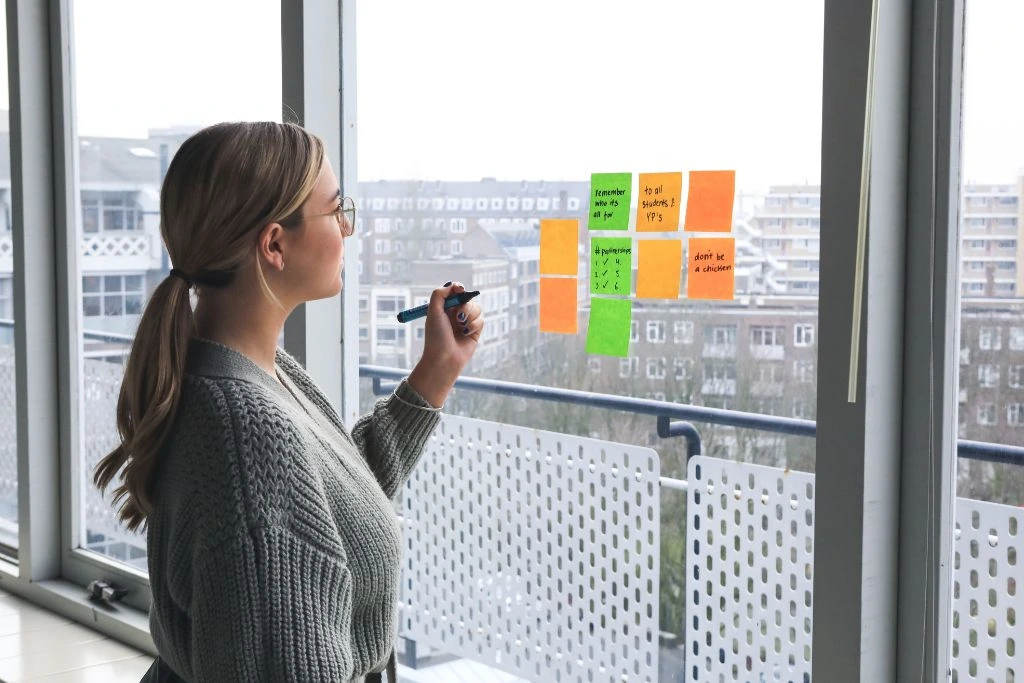
Hello, Friend.
A few weeks ago, a friend told me a story that would send chills down anyone’s spine. Her sister had received a call from an unknown man who said, “My name is Jack and I think we should talk–because your husband is having an affair with my wife.”
As I walked home, reflecting on my friend’s sister, I felt relief. “At least she knows now,” was all that ran through my mind.
In many situations in life, knowledge is power. It allows you to take appropriate steps forward, whether it’s making the right changes at work to earn a promotion, getting necessary medical care, or confrontational an unfaithful partner about their infidelity (and then deciding whether to stay married or not). Once you know something for certain, you can stop hypothesizing and instead start taking action.
Jane Buckingham, CEO of Trendera– a company that conducts consumer research and predicts trends– is one of the people who helped me understand the power of information. I Shouldn’t Be Telling You This: How to Ask for the Money; Snag the Promotion, and Create the Career You Deserve is a book containing all of the best secrets I learned during my career journey–and it came out in paperback today! I hired Jane early on into my Cosmo days, and she helped me out tremendously by providing key reader data. In fact, her name appears more often than anyone else’s in this very book!
However, one challenging element of knowledge is that it can sometimes be unpleasant. And because of that we may decide to neglect it, ignore it, or tell ourselves it isn’t important. Jane sees many intelligent business people make that choice with the research she provides them.
Jane helped me see that in order to take charge with the help of knowledge, you sometimes have to look for information that may be uncomfortable, and then accept those facts even if they aren’t ideal.
Recently, Jane and I discussed the topic further and she shared a few more insights.
- If you want to get to the bottom of things, you have to be willing to put in the work. Jane makes the observation that because we can find information so easily now, we’ve developed a sense of entitlement and often don’t read deeply enough. This means we miss out on important details and prevent ourselves from learning the truth. For instance: On Google, the inaccurate headline “Actor Eddie Murphy Dies in Snowboard Accident” appears higher than the factual headline reading “Actor Did Not Die in Snowboard Accident.” Jane believes that part of digging deep also means taking the time to decipher information and apply critical thinking.
- As Jane sees in her research, and as I experienced during my time at Cosmo, the noisiest piece of information is not always the most accurate. For example, when Twitter first became popular, I thought that by gauging users’ reactions to our covers via tweets, maybe one day I could use Twitter to help me choose cover subjects that would sell well. However, I found that there was NO correlation whatsoever between the number of positive tweets about a cover and how many copies of that issue we sold. So basically: don’t believe everything you hear!
- If you catch yourself thinking “That can’t be right,” take a step back. It might be something you don’t want to believe, which is normal. Give yourself some time- an entire day if possible- to think about it with a clear head before making any decisions. For half an hour, try to accept that the information might be true and imagine what implications it could have for your work or life in general.
- If you’re stuck at a crossroads and can’t make a decision because the information is convoluted, get more details. Oftentimes when there isn’t an obvious answer, we’ll hesitate to take action. However, if you keep collecting data points, eventually the solution will become clear.
- Jane says that instead of only using Google, sometimes it’s best to gather information from places you would never think to look. Listen, observe, and be ready to take in data from unexpected sources.
Best,
Kate White









